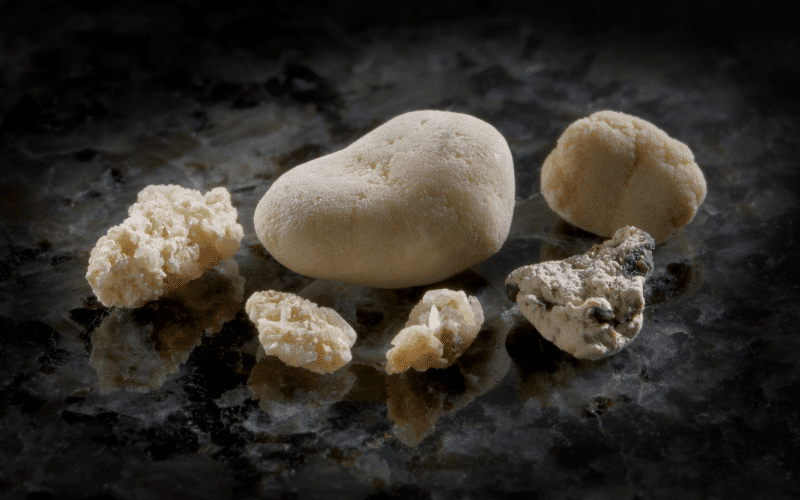Variety 5: Calcium Phosphate Stones

Balancing Calcium and Phosphate for Kidney Health
Calcium phosphate stones are another type of kidney stone that can affect people. They form when calcium combines with phosphate, another mineral found in the body. These stones are less common than calcium oxalate stones but can still cause significant discomfort and complications.
Several factors can contribute to the formation of calcium phosphate stones, such as high urine pH levels, excessive intake of phosphate-rich foods, and certain medical conditions, such as hyperparathyroidism or renal tubular acidosis.
To prevent calcium phosphate stones, it’s essential to maintain a balanced diet that includes appropriate amounts of calcium and phosphate. Drinking plenty of water can help dilute the concentration of these minerals in the urine, reducing the likelihood of stone formation. Additionally, your healthcare provider may recommend dietary modifications or medications to help regulate urine pH levels and prevent stone formation.
Regular check-ups and diagnostic tests can help detect calcium phosphate stones early, allowing for prompt treatment and prevention of complications. By closely monitoring your kidney health and working with your healthcare provider, you can significantly reduce the risk of calcium phosphate stones and maintain overall kidney health. (5)